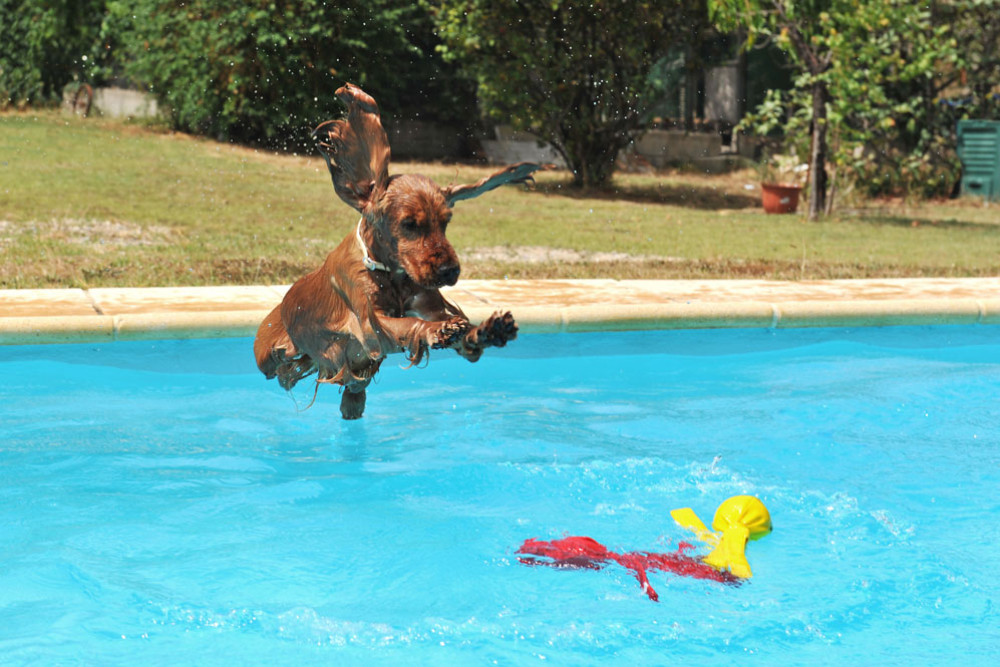Community
19 January, 2025
Advice about dogs in pools
A SINGLE dog in a household pool is equivalent to having three or more people swimming at once, as they introduce more contaminants into the water than humans. When dogs swim, they affect the pool’s pH levels, requiring more chlorine to maintain sanitisation.

Fur, oils, and dirt can all lead to imbalances, and dogs also bring particles like dander, and even small traces of faecal matter.
This can lead to the spread of recreational water illnesses (RWIs), including E. coli, Giardia, Hepatitis A, and Cryptosporidium.
Dog hair, especially from long or double-coated breeds, can shed into the water, entering and clogging pool filters, skimmers, and pumps.
Clogged filters not only reduce the efficiency of the pool’s filtration system but also place additional strain on the pump, potentially reducing its lifespan.
Regular cleaning of the skimmer basket, pump basket, and filter is crucial if your dog regularly swims in your backyard pool.
Checking equipment frequently can help prevent hair and other contaminants from impacting water flow and filtration.
The best way to ensure a safe and healthy pool is regular water testing and proper chemical balancing.
Here are some essential maintenance tips to ensure all family members can have a summer of fun.
Test your pool water at least once a week to ensure your pH levels are correct
Regularly check your pool filter and equipment in case of fur build up
Clear out your skimmer basket by scooping out any debris your dog may bring in
Keep an eye on your pets while they are swimming
Treat your water with Shock N Swim from Poolwerx.
Additional tips to keep dogs safe
Provide fresh drinking water: While it’s generally safe for dogs to ingest small amounts of pool water, large quantities can upset their stomach. Keep fresh drinking water nearby to discourage pool drinking
Supervise your pet: Not all dogs are natural swimmers, and even those that are, may tire quickly. Supervise your dog to prevent accidents and keep swimming sessions short
Set up alternative cooling options: To minimise wear on your pool’s filtration system, consider using a shallow kiddie pool or sprinkler as a refreshing alternative for your dog on hot days
Sanitiser levels: Maintain proper chlorine levels to neutralise bacteria like E. coli and other germs that could cause RWIs. Poolwerx offers free water testing to help you monitor these levels effectively
Rinse your dog before swimming: Rinsing your dog with fresh water before they enter the pool helps remove oils, dirt, and loose hair, reducing the amount of contaminants they bring into the water.


